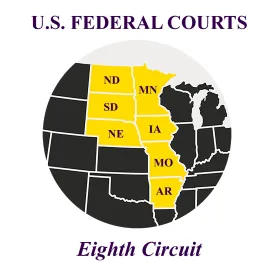Background
On March 27, 2020, the Eighth Circuit in Sanzone v. Mercy Health, 2020 U.S. App. LEXIS 9537 (8th Cir. March 27, 2020), ruled on several key issues on the “church plan” exemption to ERISA. As background, beginning in 2013, plaintiff’s counsel filed ERISA class-action cases across the country challenging the application of ERISA’s “church plan” exemption to non-profit church-affiliated hospital organizations. In 2017, the Supreme Court ruled in Advocate Health Care Network v. Stapleton, 137 S. Ct. 1652 (2017), that ERISA’s “church plan” exemption includes plans maintained by a church-affiliated organization whose principal purpose is the funding or administration of that plan. This meant that plans of non-profit church-affiliated hospitals, social service organizations, schools and the like could qualify for this exemption if they meet these statutory requirements.
Plaintiffs have also asserted the “church plan” exemption violates the Establishment Clause of the First Amendment. Although the Advocate Supreme Court adopted a broad construction of the “church plan” exemption, it did not address this issue; subsequently, the U.S. Government filed a brief in Sanzone v. Mercy Health arguing the “church plan” exemption fully follows the First Amendment.
After Advocate, plaintiff’s counsel has continued to pursue cases challenging what is a “principal purpose organization,” including what is required to “maintain” a plan, and whether the “church plan” exemption violates the Establishment Clause of the First Amendment.
Sanzone v. Mercy Health Ruling
The Eighth Circuit addressed these issues in Sanzone. The focus in Sanzone (as in other post-Advocate “church plan” cases) is on whether a hospital’s internal benefits committee constitutes a principal purpose organization. Consistent with rulings by other courts, the Eighth Circuit said yes, applying ordinary meanings to the statutory terms “maintain” and “organization.”
First, the Eighth Circuit looked to dictionary definitions to conclude “maintain” means “to continue something” or “to care for (property) for purposes of operational productivity.” The court held the internal benefits committee met this definition, i.e., the committee was responsible for plan administration and interpretation, and had all discretionary authority to carry out the provisions of the plan.
Second, the Eighth Circuit again looked to dictionary definitions to conclude “organization” means “an administrative and functional structure” or “a group of people who work together in an organized way for a shared purpose.” The court concluded the internal benefits committee met this definition, as it was a group of people who worked together for a shared purpose.
Finally, the Eighth Circuit addressed the Establishment Clause issue. The district court had dismissed this constitutional claim for lack of standing, i.e., for lack of an impending redressable injury from current plan underfunding. The Eighth Circuit noted plaintiff’s claimed injury was broader than that and remanded for the district court to consider whether deprivation of ERISA protections would constitute a sufficient injury to confer standing.
Implications
The Eighth Circuit’s ruling that an internal benefits committee is sufficient to qualify for the “church plan” exemption follows rulings by other courts and provides helpful guidance to assist church-affiliated non-profits in maintaining this exemption for their plans. These cases provide examples of “best practices” that can assist church-affiliated organizations in complying with this exemption.
On the constitutional Establishment Clause challenge, the Eighth Circuit has rejected the no-standing ground adopted by other courts, which had allowed them to avoid ruling on the merits of this issue. This means Sanzone may become the “test case” on this issue. While resolving constitutional issues can be difficult to predict, based on our work defending other church-affiliated organizations on this issue, we believe that there are sound defenses to this constitutional challenge.




 />i
/>i

